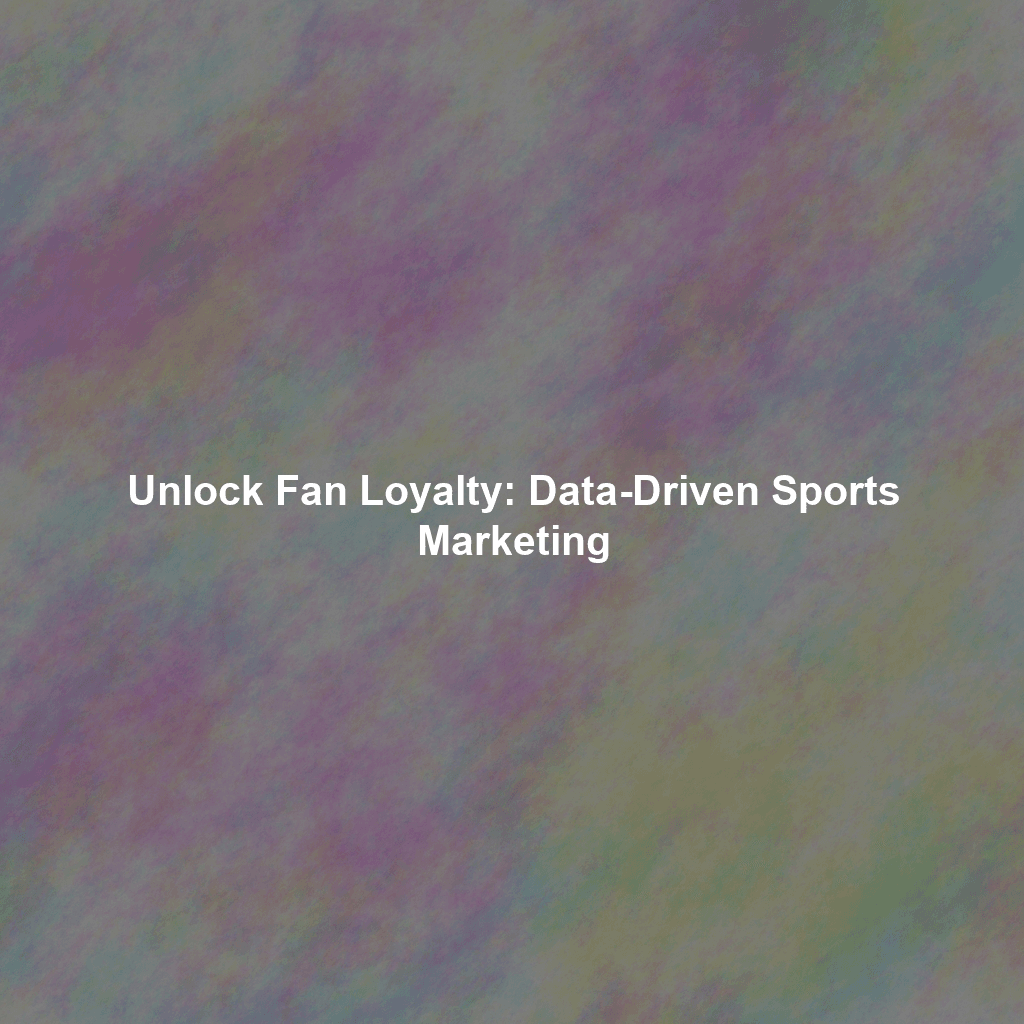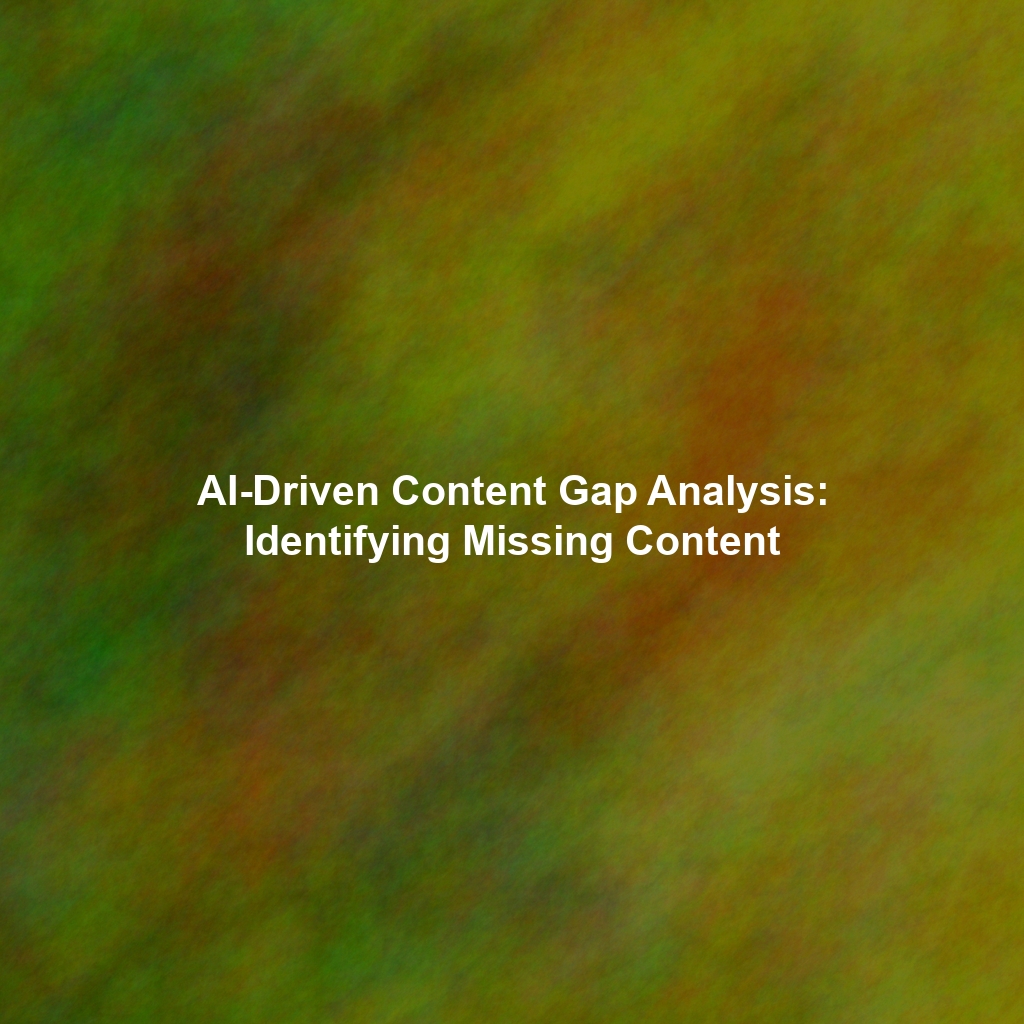The Power of Data Analytics in Professional Sports Marketing
For decades, professional sports marketing relied heavily on broad demographics and assumptions about fan behavior. Today, data analytics allows leagues and teams to gain granular insights into individual fan preferences, purchasing habits, social media activity, and more. This deeper understanding fuels more effective marketing campaigns, improved customer lifetime value, and a stronger connection between fans and their favorite teams.
The benefits are clear: Personalized experiences lead to increased engagement, higher ticket sales, improved merchandise revenue, and stronger brand loyalty. Leagues that embrace data-driven strategies gain a significant competitive advantage in a crowded marketplace.
Understanding Fan Behavior Through Data Analytics
Before personalizing marketing campaigns, it’s crucial to gather and analyze relevant data. Here are some key data sources and analytical techniques used in professional sports:
- Ticket Purchase Data: Analyzing ticket purchase history reveals patterns in attendance, seat preferences, and price sensitivity. This data can be used to tailor ticket offers and promotions.
- Website and App Activity: Tracking user behavior on team websites and mobile apps provides insights into content preferences, browsing habits, and engagement with digital assets. Tools like Google Analytics and Amplitude are commonly used.
- Social Media Engagement: Monitoring social media conversations, mentions, and hashtags reveals fan sentiment, trending topics, and influential voices. Social listening tools like Brandwatch and Sprout Social are invaluable.
- Email Marketing Data: Analyzing email open rates, click-through rates, and conversion rates helps optimize email marketing campaigns and personalize messaging.
- In-Venue Data: Gathering data from Wi-Fi networks, beacon technology, and mobile apps within stadiums and arenas provides insights into fan movement, concession purchases, and overall game-day experience.
- CRM Data: Centralizing fan data in a Customer Relationship Management (CRM) system allows for a unified view of each fan’s interactions with the team or league. Salesforce and Microsoft Dynamics 365 are popular CRM choices.
Advanced analytics techniques, such as machine learning and predictive modeling, can be applied to these data sources to identify patterns, predict future behavior, and personalize experiences. For example, machine learning algorithms can predict which fans are most likely to purchase season tickets or attend a specific game.
Personalizing Marketing Campaigns with Data-Driven Insights
Once fan behavior is understood, leagues and teams can personalize marketing campaigns to resonate with individual fans. Here are some examples of how data analytics is used to personalize marketing:
Targeted Email Marketing
Instead of sending generic email blasts to all fans, teams can segment their email lists based on demographics, purchase history, and engagement levels. For example, fans who have previously purchased tickets to a specific opponent can receive targeted offers for upcoming games against that team. Furthermore, dynamic content within emails can be personalized based on individual preferences, such as displaying the fan’s favorite player or highlighting relevant merchandise.
Personalized Website and App Experiences
Team websites and mobile apps can be personalized based on user data. For example, a fan who frequently visits the team’s news section might see more news articles on the homepage. Similarly, a fan who has purchased merchandise featuring a specific player might see personalized recommendations for similar items. Recommendation engines, similar to those used by e-commerce giants like Amazon, can be integrated to suggest relevant content and products.
Dynamic Content and Advertising
Data can be used to personalize advertising campaigns across various channels, including social media, search engines, and streaming services. For example, fans who have expressed interest in a particular sport or team on social media can be targeted with ads promoting ticket offers or merchandise. Dynamic creative optimization (DCO) allows marketers to automatically adjust ad content based on user data, ensuring that ads are relevant and engaging.
Loyalty Programs and Rewards
Data analytics can be used to personalize loyalty programs and reward fans for their engagement. For example, fans can earn points for attending games, purchasing merchandise, and interacting with the team on social media. These points can then be redeemed for exclusive rewards, such as meet-and-greets with players, signed merchandise, or VIP experiences. Personalized reward tiers can be created based on fan behavior, incentivizing increased engagement and loyalty.
Case Studies: Real-World Examples of Data-Driven Fan Engagement
Several professional sports leagues and teams have successfully implemented data-driven fan engagement strategies. Here are a few notable examples:
The NBA’s Data-Driven Approach
The NBA is a leader in using data analytics to enhance the fan experience. The league collects data from a variety of sources, including ticket sales, website activity, social media, and in-venue interactions. This data is used to personalize marketing campaigns, optimize ticket pricing, and improve the overall game-day experience. The NBA also uses data analytics to power its NBA League Pass streaming service, providing personalized recommendations and interactive features for viewers. According to a 2022 study by SportTechie, the NBA’s data-driven initiatives have led to significant increases in fan engagement and revenue.
MLB’s Use of Predictive Analytics
Major League Baseball (MLB) teams are increasingly using predictive analytics to forecast ticket demand, optimize stadium operations, and personalize fan experiences. For example, some teams use weather data and historical ticket sales data to predict attendance and adjust staffing levels accordingly. MLB also leverages data to personalize in-stadium promotions and offers, such as sending targeted messages to fans based on their location and purchase history. In a 2021 article published by IBM, several MLB teams highlighted the impact of AI powered solutions in increasing revenues and improving the fan experience.
The NFL’s Focus on Fan Loyalty
The National Football League (NFL) uses data analytics to understand fan loyalty and personalize the fan experience. The league collects data from a variety of sources, including ticket sales, merchandise purchases, and social media engagement. This data is used to identify loyal fans and reward them with exclusive benefits and experiences. The NFL also uses data analytics to personalize its mobile app, providing fans with customized news, scores, and highlights based on their favorite teams and players.
These are just a few examples of how professional sports leagues are using data analytics to drive fan engagement and revenue. As data analytics technologies continue to evolve, we can expect to see even more innovative applications in the future.
Improving Customer Lifetime Value Through Data-Driven Engagement
Data-driven fan engagement is not just about increasing short-term revenue; it’s also about building long-term relationships with fans and improving customer lifetime value (CLTV). By understanding fan preferences and providing personalized experiences, leagues and teams can foster loyalty and encourage repeat purchases over time.
Here are some ways to improve CLTV through data-driven engagement:
- Personalized Onboarding: Welcome new fans with personalized messages and offers based on their initial interests.
- Targeted Upselling and Cross-selling: Recommend relevant products and services based on past purchases and browsing behavior.
- Proactive Customer Service: Identify fans who are at risk of churn and proactively address their concerns.
- Exclusive Offers for Loyal Fans: Reward loyal fans with exclusive discounts, experiences, and early access to tickets.
- Continuous Improvement: Regularly analyze data to identify areas for improvement and optimize fan engagement strategies.
By focusing on CLTV, leagues and teams can build a sustainable business model that is less reliant on short-term fluctuations in attendance or merchandise sales. This requires a shift in mindset from transactional marketing to relationship marketing, where the focus is on building long-term relationships with fans.
Building trust with your fans is critical, particularly when requesting access to their data. If your organization is looking for ways to improve how you collect and use customer data, resources available from organizations like the Electronic Frontier Foundation can be helpful in promoting ethical practices.
Ethical Considerations and Data Privacy
While data-driven fan engagement offers significant benefits, it’s crucial to address the ethical considerations and data privacy implications. Fans are increasingly concerned about how their data is collected, used, and shared. Leagues and teams must be transparent about their data practices and ensure that they are complying with all relevant data privacy regulations, such as the General Data Protection Regulation (GDPR) and the California Consumer Privacy Act (CCPA). The International Association of Privacy Professionals (IAPP) provides extensive resources for organizations seeking to comply with privacy laws and build ethical data practices.
Here are some key ethical considerations to keep in mind:
- Transparency: Be upfront with fans about how their data is being collected and used.
- Consent: Obtain explicit consent from fans before collecting and using their data.
- Security: Implement robust security measures to protect fan data from unauthorized access and breaches.
- Data Minimization: Only collect data that is necessary for the intended purpose.
- Data Retention: Retain fan data only for as long as it is needed.
- Data Accuracy: Ensure that fan data is accurate and up-to-date.
- Data Portability: Allow fans to access and download their data.
- Right to be Forgotten: Allow fans to request that their data be deleted.
By prioritizing ethical data practices, leagues and teams can build trust with fans and ensure that data-driven fan engagement is sustainable in the long run.
The Future of Data-Driven Fan Engagement
Data-driven fan engagement is constantly evolving as new technologies and data sources emerge. Here are some trends that are shaping the future of fan engagement:
- Artificial Intelligence (AI): AI is being used to personalize fan experiences at scale, automate marketing tasks, and predict future behavior.
- Virtual Reality (VR) and Augmented Reality (AR): VR and AR are creating immersive fan experiences that blur the lines between the physical and digital worlds.
- Blockchain Technology: Blockchain is being used to create secure and transparent loyalty programs, manage digital collectibles, and facilitate fan voting.
- The Metaverse: Sports leagues are experimenting with creating virtual worlds within the metaverse, where fans can interact with each other, watch games, and purchase virtual merchandise.
- 5G Connectivity: 5G is enabling faster and more reliable mobile connectivity, which is essential for delivering personalized experiences in stadiums and arenas.
As these technologies mature, we can expect to see even more innovative applications of data-driven fan engagement in the years to come. Leagues and teams that embrace these technologies will be well-positioned to connect with fans in new and exciting ways.
Successful implementation of these emerging technologies often requires specialized expertise. If your organization needs assistance with data collection, analysis, or personalization strategies, there are many consulting firms specializing in sports analytics that can provide tailored solutions.
This article was optimized and published by Content Hurricane.
 Skip to content
Skip to content

